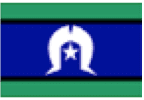For many Victorians who cannot work due to illness, injury or disability, the Disability Support Pension (DSP) can provide regular income to support an improved quality of life – but it can be difficult to access due to the precise and strict eligibility criteria.
Requests for information and legal assistance about how to access the DSP are among the most common matters SSRV receive. In addition to the criteria, the application process is lengthy, complex and can also be difficult to navigate. This difficulty for applicants living with a disability to submit a robust application can be further compounded by their daily challenges, limited income and support.
SSRV often hears from clients, medical professionals, and social and community workers supporting clients, that the application process causes significant stress for applicants who are doing their best to ensure they provide Centrelink with what they need to assess their eligibility.
In response, SSRV developed DSP Help, a free online support tool to support clients to self-advocate, which provides information in plain language to guide applicants, health professionals, and community workers to obtain quality medical evidence.
DSP Help includes template letters and suggestions on how to lodge better DSP applications.
Florence* had been working two days a week in aged care until she was forced leave due to challenging medical conditions which include epilepsy and autoimmune diseases.
After her first DSP application was rejected, Florence called SSRV and spoke with a SSRV Community Lawyer, seeking advice.
During her appointment, Florence said she was not certain her treating doctor had noted her multiple medical conditions, or that the doctor was familiar with the DSP Impairment Tables that Centrelink uses to assess DSP eligibility.
The lawyer discussed the options available to Florence and recommended she obtain new quality medical evidence and use DSP Help to guide her through the application process.
Florence used the DSP Help to work out what medical evidence she needed. She reviewed the Impairment Tables and the corresponding explanation on DSP Help, and this helped her better understand what she needed to discuss with her doctor. She used the DSP Help medical evidence bot to ensure she understood how her medical conditions affected her and her ability to work.
Florence also downloaded the template letters to provide to her doctor, who used the template to write a letter of support which directly addressed the DSP eligibility criteria. By using DSP Help Florence was able to ensure her second DSP application was as strong as possible.
SSRV’s wrap-around service of providing advice, information and free online tool, provided Florence with comprehensive support. Florence told us that this approach gave her the confidence to gather the right evidence, feel good about submitting a second and better DSP application, and supported her to self-advocate.
She said that DSP Help gave her confidence to work with her medical professional to ensure she obtained precise, quality medical evidence.
Florence said DSP Help was easy to navigate and that she considered the tool essential to ensuring she met the DSP criteria by providing the right medical evidence. It saved her substantial time researching on the internet as the information she needed was in the one place. It reduced her stress significantly and she told us she felt confident that she did everything she could to provide quality medical evidence.
Since lodging her application Florence has been contacted twice by Centrelink officers who are now re-assessing her DSP eligibility.
*Name has been changed.




